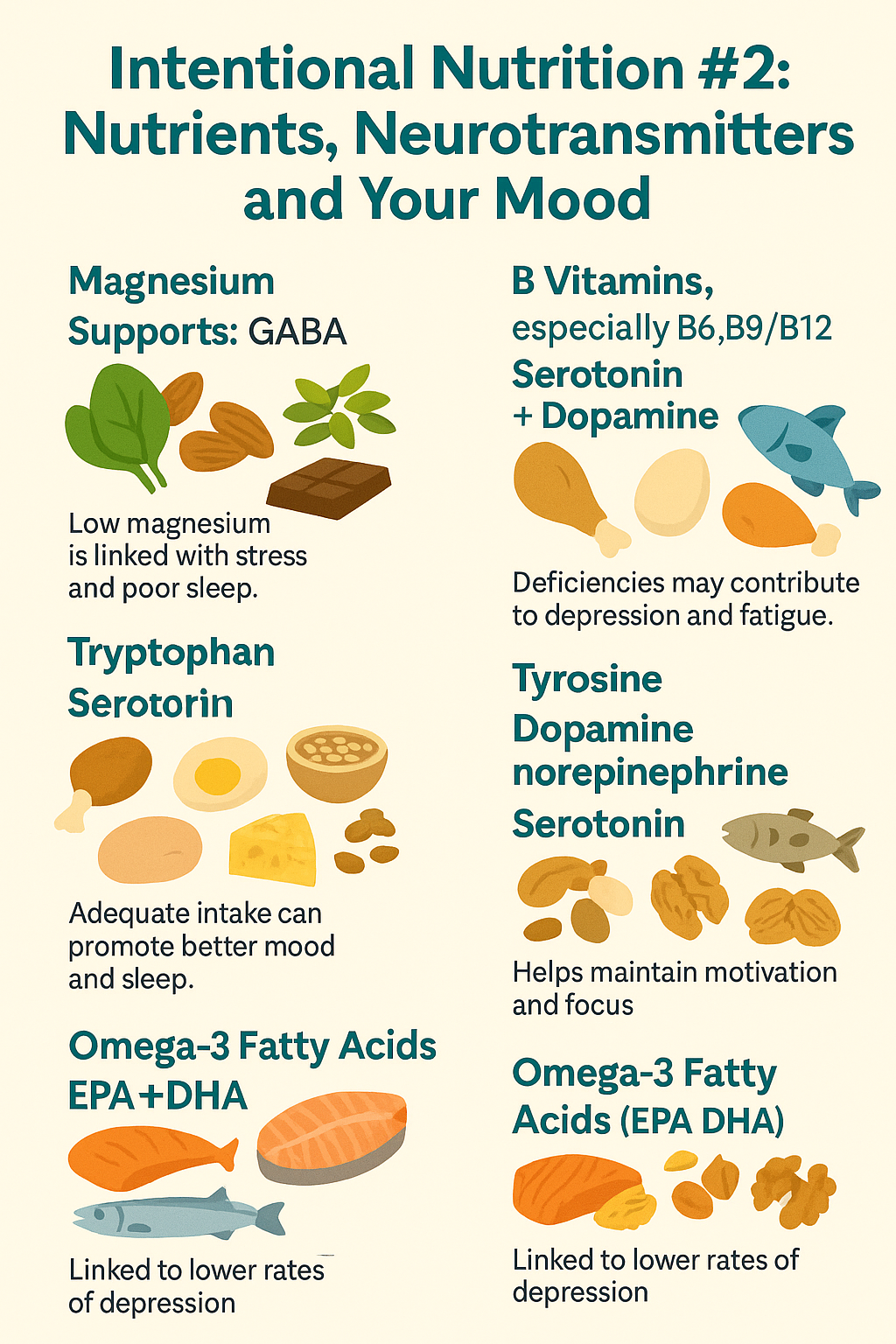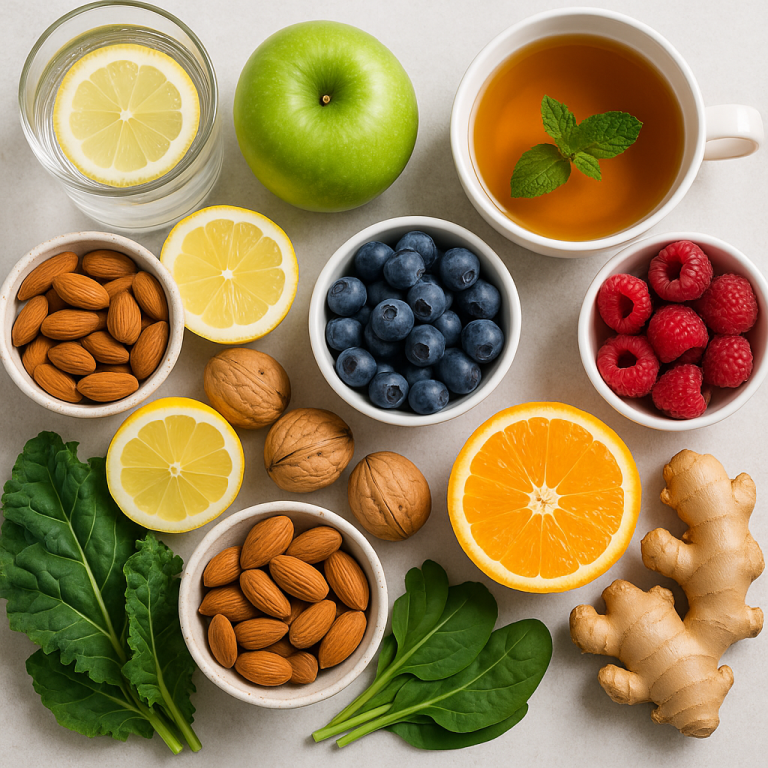Intentional Nutrition #2: Nutrients, Neurotransmitters, and Your Mood
Behind every thought, feeling, and burst of energy are neurotransmitters — chemical messengers in the brain. What we eat provides the building blocks for these messengers, meaning nutrition directly influences focus, motivation, calm, and resilience.
Key Nutrients and Their Neurotransmitter Connections
- Magnesium Supports: GABA (gamma-aminobutyric acid), the neurotransmitter that promotes calm and relaxation. Food sources: Spinach, almonds, pumpkin seeds, dark chocolate. Why it matters: Low magnesium is linked with stress, irritability, and poor sleep.
- B Vitamins (especially B6, B9, B12) Support: Serotonin and dopamine production. Food sources: Leafy greens (B9/folate), eggs, fish, poultry, beef, fortified cereals. Why it matters: Deficiencies may contribute to depression, fatigue, and difficulty concentrating.
- Tryptophan (an amino acid) Supports: Serotonin, the “happiness and calm” neurotransmitter. Food sources: Turkey, chicken, eggs, oats, seeds. Why it matters: Adequate tryptophan intake can promote balanced mood and better sleep.
- Tyrosine (an amino acid) Supports: Dopamine and norepinephrine, neurotransmitters tied to motivation, alertness, and focus. Food sources: Chicken, cheese, soy, peanuts, fish. Why it matters: Helps maintain drive, attention, and resilience under stress.
- Omega-3 Fatty Acids (EPA & DHA) Support: Dopamine and serotonin signaling. Food sources: Salmon, sardines, tuna, walnuts, flax and chia seeds. Why it matters: Consistently linked to lower rates of depression and improved cognitive function.
- Iron & Zinc Support: Dopamine production and overall brain energy metabolism. Food sources: Lean red meat, lentils, pumpkin seeds, chickpeas. Why it matters: Low iron = fatigue and brain fog; low zinc = increased stress and low mood.
Everyday Actions You Can Try
- Add pumpkin seeds to salads or yogurt → easy way to boost magnesium and zinc.
- Swap refined bread for whole-grain or oats → adds B vitamins and tryptophan support.
- Include fish twice per week (or walnuts/flax seeds daily) → for steady omega-3s.
- Choose dark leafy greens daily → folate (B9) supports serotonin and dopamine balance.
- Enjoy a square of dark chocolate → combines magnesium, antioxidants, and a small serotonin lift.
The Takeaway
Think of food as brain fuel: it provides the raw materials to build and balance neurotransmitters. By choosing foods rich in magnesium, B vitamins, omega-3s, and amino acids, you’re directly supporting your mood, memory, and energy levels. Small swaps add up — one handful of seeds, one serving of greens, one piece of fish — and your brain will thank you.




